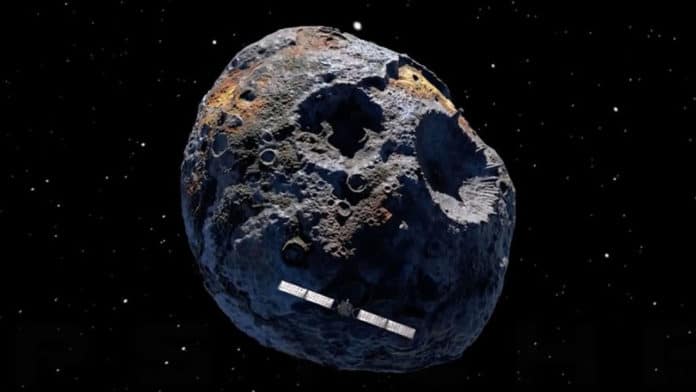Biomining is already a reality on Earth. Now, Luis Zea and his co-investigator Jesse Colangelo in the University of Colorado Boulder’s Department of Geological Sciences are investigating the possibility of mining metals from asteroids in space using an unlikely agent: bacteria.
Zea, an assistant research professor in BioServe Space Technologies and the Ann and H.J. Smead Department of Aerospace Engineering Sciences at CU Boulder said, “Biomining is a process where mined materials are placed in vats with water and specialized bacteria that extract the desired metals from the surrounding rock. It’s an alternative to traditional mining, where harsh chemicals are often used to separate gold or other metals.”
“About 15% of our copper and 5% of our gold are already extracted here on Earth using bacteria.”
Tadg Forward, a molecular, cellular and developmental biology senior working with Zea on the project said, “It’s actually cheaper to do than regular mining. You pour water and the bacteria on the rocks, and you get a product out of it.”
Scientists are investigating the performance of the bacterium Shewanella oneidensis for the extraction of iron from lunar, Martian and asteroid regolith simulant under simulated reduced-gravity conditions.
Zea said, “There’s a huge potential financial upside to space mining: many asteroids are chock-full of metals that are heavily used in electronics and other products but are hard to find on Earth.”
“In space, there are virtually limitless amounts of some of the 44 endangered elements that could face supply limitations here in the future. Future wars could be driven by access to them, so if we can find a new source, it helps mitigate that risk.”
“NASA is planning a robotic exploration mission in 2022 to one such asteroid, 16 Psyche, which is located between Mars and Jupiter and is estimated to contain $700 quintillion worth of nickel, iron and precious metals.”
“Its value is more than the total amount of all money in circulation worldwide.”
Mining in space could be a financial boon. It could likewise give an effectively available wellspring of metals for the development of future space stations or deep space probes. Approaching such materials would enable structures to be constructed altogether in space, decreasing the requirement for costly launches of completed, substantial payloads from Earth.
Zea said, “Space biomining may sound pretty sci-fi today, but it will be a reality in the future. We’re uniquely positioned in BioServe to be on the ground floor of this work. We already research microgravity and microbiology, and this particular bacteria has been to space before, so we know it can survive in microgravity.”
“A further environmental benefit of a future with off-world mining: the potential that Earth could be reserved exclusively for living and all heavy industry and mining could be conducted entirely in space.”
